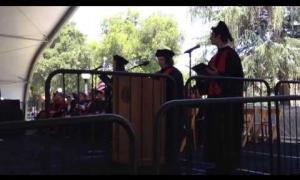Speeches: Why We hate to read them, and why we do it anyway (Part Two of Three)
May 24, 2011
“The public are agreed that speeches in general, however well recorded, make dull reading,” writes Kettle.
But it is only partially true. To the dull all things are dull. Readers immersed in the particular and the present, and devoid of historical imagination, turn aside with very natural ennui from the printed eloquence of dead men. But they turn aside just as brusquely from every other innuendo of the soul. What does that prove, except that a dumpling is always a dumpling?
The reason to plow through printed speeches is that “oratory is at once the expression and the chronicle of that creative stress which has shaped the course of political development in every parliamentary country,” Kettle contends.
“Dismal rectitude”: why most speeches do indeed deserve to go unremembered
The peril of the orator, his disease of occupation as one may call it, is the temptation to sacrifice structure to ornament. That lure assails him in every acclamation of his listeners. Packed together in crowds we are all absorbed into the ethos of the crowd; standards decline; the swift stimulation of raw spirits is preferred to the tardier glow of matured wine. We all but insist that a speaker shall cheapen his argument, shall drop to the role of public entertainer.
Kettle laments a “New Philsitinism” (not so new these days), by which “our old freedom of mind, and with it our old sense of the form has been gravely compromised.”
How so?
Laughter must be according to schedule; lucidity, betraying as it does a certain infection of art, lies under suspicion. In such an atmosphere the effort to keep one’s soul alive, which is the whole task of culture, is not distinguished from the antics of the jester. Public speaking wallows in a trough of dismal rectitude, and … universal dullness covers all.
And so how are great speeches made? “Fundamental brain-work”
Almost everybody who gives himself the trouble of reading a book of speeches ends up with a practical and personal question: How am I to set about making a good speech? What is the formula or recipe? There is none. It is with speeches as Rossetti tells us it is with sonnets: without “fundamental brain-work” there can be no greatness. Tricks of the surface may be learned by any poodle; but without knowledge, sincerity, and a hearty spiritual commitment to public causes the crown of oratory, such as it is, is not to be won.
How old-fashioned. These days, everybody knows, it’s not what you say that matters in public speaking, it’s how slick your PowerPoint slides are.
Next week, we’ll get Tom Kettle’s take on nothing less than the social purpose of public oratory. —DM



